Why the Ferguson protesters marched on Walmart
The backlash to Ferguson isn't just about the actions of one cop. It's about a whole system of oppression.
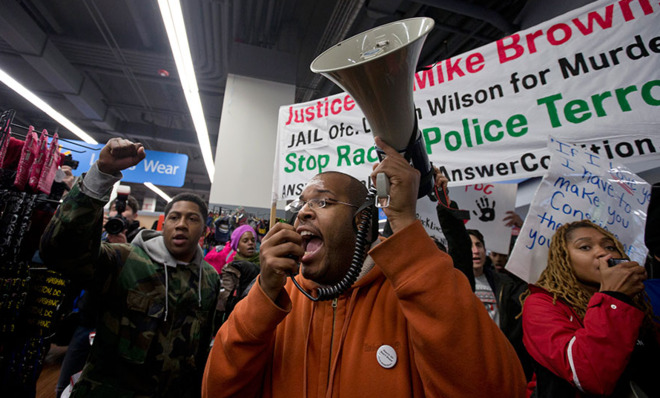
A free daily email with the biggest news stories of the day – and the best features from TheWeek.com
You are now subscribed
Your newsletter sign-up was successful
The protests surrounding the killing of Michael Brown have not been contained to Ferguson, Missouri.
Highways, bridges, and public transit systems were blocked in New York, Washington, D.C., Boston, Portland, Oakland, Los Angeles, and elsewhere. And on Black Friday, a day that was already slated for protest by Walmart workers and their supporters around the country, activists marched into major retail outlets as part of a call to boycott the biggest shopping event of the year. They held die-ins at Trader Joe's and shut down a mall in St. Louis. They chained together doors at a Seattle shopping center, and joined Walmart workers in D.C. to protest.
The news of the call spread on Twitter via hashtags like #notonedime, #blackoutblackfriday, and #handsupdontshop. And while it's probably impossible to pinpoint one cause for declining sales numbers over the holiday weekend, reports came Monday that sales had dropped 11 percent from the previous year.
The Week
Escape your echo chamber. Get the facts behind the news, plus analysis from multiple perspectives.

Sign up for The Week's Free Newsletters
From our morning news briefing to a weekly Good News Newsletter, get the best of The Week delivered directly to your inbox.
From our morning news briefing to a weekly Good News Newsletter, get the best of The Week delivered directly to your inbox.
"The whole system is guilty." That's the constant refrain you hear from protesters, one that was also prevalent after the acquittal of George Zimmerman for the killing of Trayvon Martin. It is not enough, this generation of activists says, for one police officer to go to jail in a country where no verified statistics exist for how often police officers kill, and where the victim of violence is too often described as its initiator.
That system is not just about how law and order is enforced. From the beginning, Ferguson residents have drawn the connection between the economic inequality faced by black Americans and the violence they suffer at the hands of authorities.
"It's all about money in St. Louis," protester DeAndre Smith told the St. Louis Post-Dispatch back in August. "When you stop their flow of income, when you stop their whole everything, their business..." He let the thought trail off, but it has been picked up in the wake of the grand jury decision not to indict Darren Wilson.
Smith also alluded to the way Ferguson's economy relies on over-policing. The city's second-largest source of revenues last year was the $2.6 million it collected in court fines and fees, according to a report from ArchCity Defenders, a public defense organization in St. Louis.
A free daily email with the biggest news stories of the day – and the best features from TheWeek.com
The targeting of Black Friday, which some have questioned, was meant to underscore the connection between economic injustice and the racial injustice felt by those on Ferguson's streets.
Walmart, for example, according to its own calculation, is the largest employer of black people in America — some 19 percent of its workforce is African-American. Those black workers are disproportionately likely to be hourly employees rather than management, and those hourly employees make around $8.81 per hour.
In response to political pressure in the wake of the shooting of Trayvon Martin, Walmart withdrew from the American Legislative Exchange Council, the organization that had backed a model bill creating the "Stand Your Ground" law under which Zimmerman originally went free. And in a grim irony, it was a Walmart store in Beavercreek, Ohio, where police shot John Crawford III, a 22-year-old black man who was holding a toy gun sold in the store.
The calls to boycott Black Friday echoed the Civil Rights movement's boycotts, making a direct connection between "business as usual" holiday shopping and the circumstances under which black people in the U.S. live — "business as usual" relies on the labor and the dollars of black Americans, as it always has. Inequality has become a hot topic in recent years, and the Black Friday boycott called attention to the way racism has shaped and created that inequality. Black people are more likely to work in low-wage jobs or to be unemployed. Black wealth was decimated by the mortgage crisis.
And black people, of course, are much more likely to be arrested and incarcerated. Stand Your Ground does not apply to Marissa Alexander, the Florida woman who took a plea deal to avoid 60 years in jail for the crime of firing a warning shot, but it did to George Zimmerman. The whole system is unequal.
"We believe the police and mass incarceration is a way of reinforcing social problems rather than solving them," Eugene Puryear, a Washington, D.C., organizer, told Slate's Betsy Woodruff after the protest march entered one of the city's new Walmart stores last week. "So we wanted to point out that the low-wage workforce is a big piece of that. And we want to support our brothers and sisters who are working hard every day and just want to make a living for their families."
Blackout Black Friday was just the latest indication that we are seeing a racial justice movement that is bigger than one person, one court case, and one issue. It is a long-term struggle against inequality, which aims to change much more than just one city's police department.
-
 5 blacked out cartoons about the Epstein file redactions
5 blacked out cartoons about the Epstein file redactionsCartoons Artists take on hidden identities, a censored presidential seal, and more
-
 How Democrats are turning DOJ lemons into partisan lemonade
How Democrats are turning DOJ lemons into partisan lemonadeTODAY’S BIG QUESTION As the Trump administration continues to try — and fail — at indicting its political enemies, Democratic lawmakers have begun seizing the moment for themselves
-
 ICE’s new targets post-Minnesota retreat
ICE’s new targets post-Minnesota retreatIn the Spotlight Several cities are reportedly on ICE’s list for immigration crackdowns
-
 A peek inside Europe’s luxury new sleeper bus
A peek inside Europe’s luxury new sleeper busThe Week Recommends Overnight service with stops across Switzerland and the Netherlands promises a comfortable no-fly adventure
-
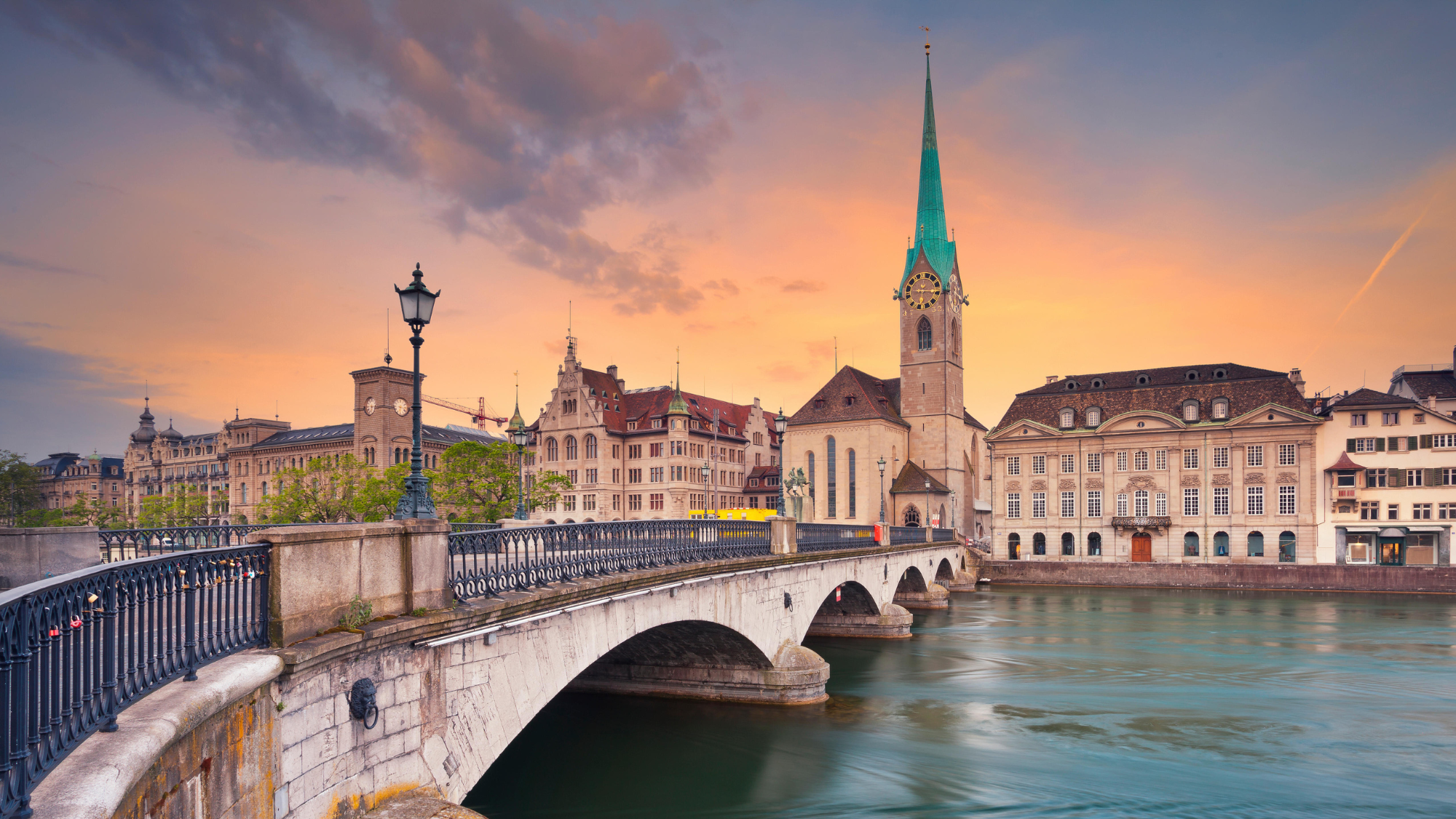 A long weekend in Zürich
A long weekend in ZürichThe Week Recommends The vibrant Swiss city is far more than just a banking hub
-
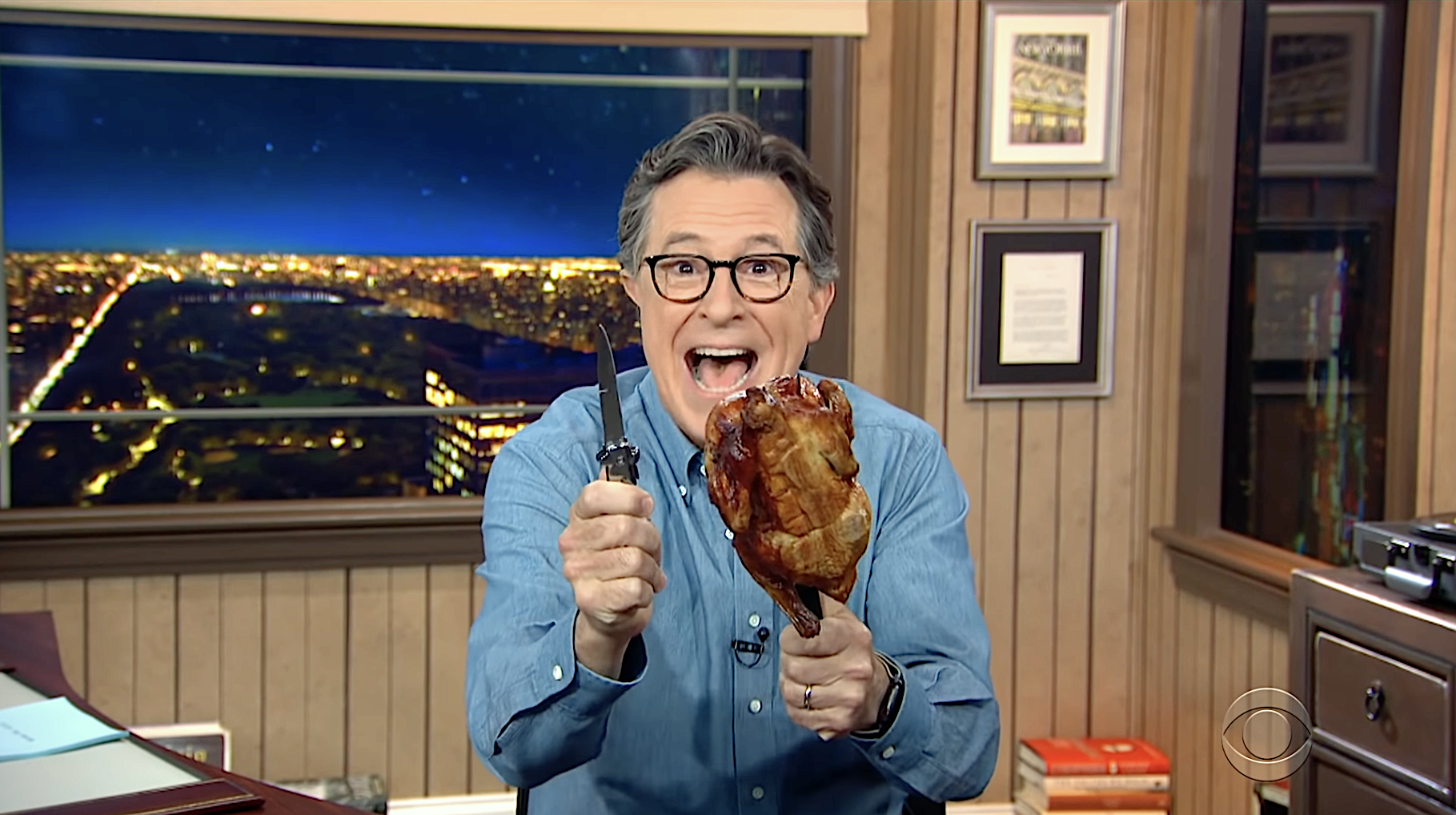 Late night hosts lightly try to square the GOP's Liz Cheney purge with its avowed hatred of 'cancel culture'
Late night hosts lightly try to square the GOP's Liz Cheney purge with its avowed hatred of 'cancel culture'Speed Read
-
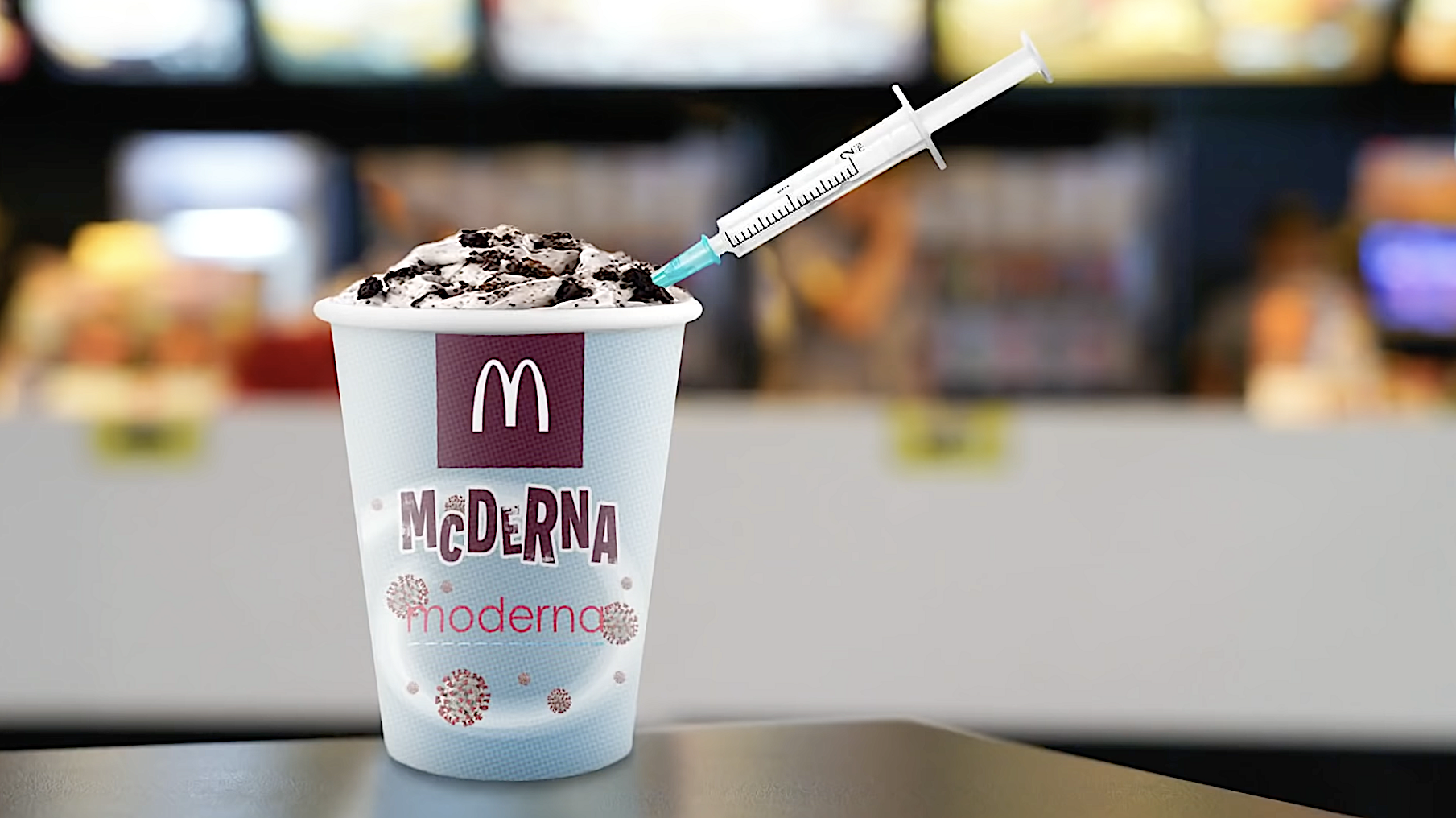 Late night hosts survey the creative ways America is encouraging COVID-19 vaccinations, cure 'Foxitis'
Late night hosts survey the creative ways America is encouraging COVID-19 vaccinations, cure 'Foxitis'Speed Read
-
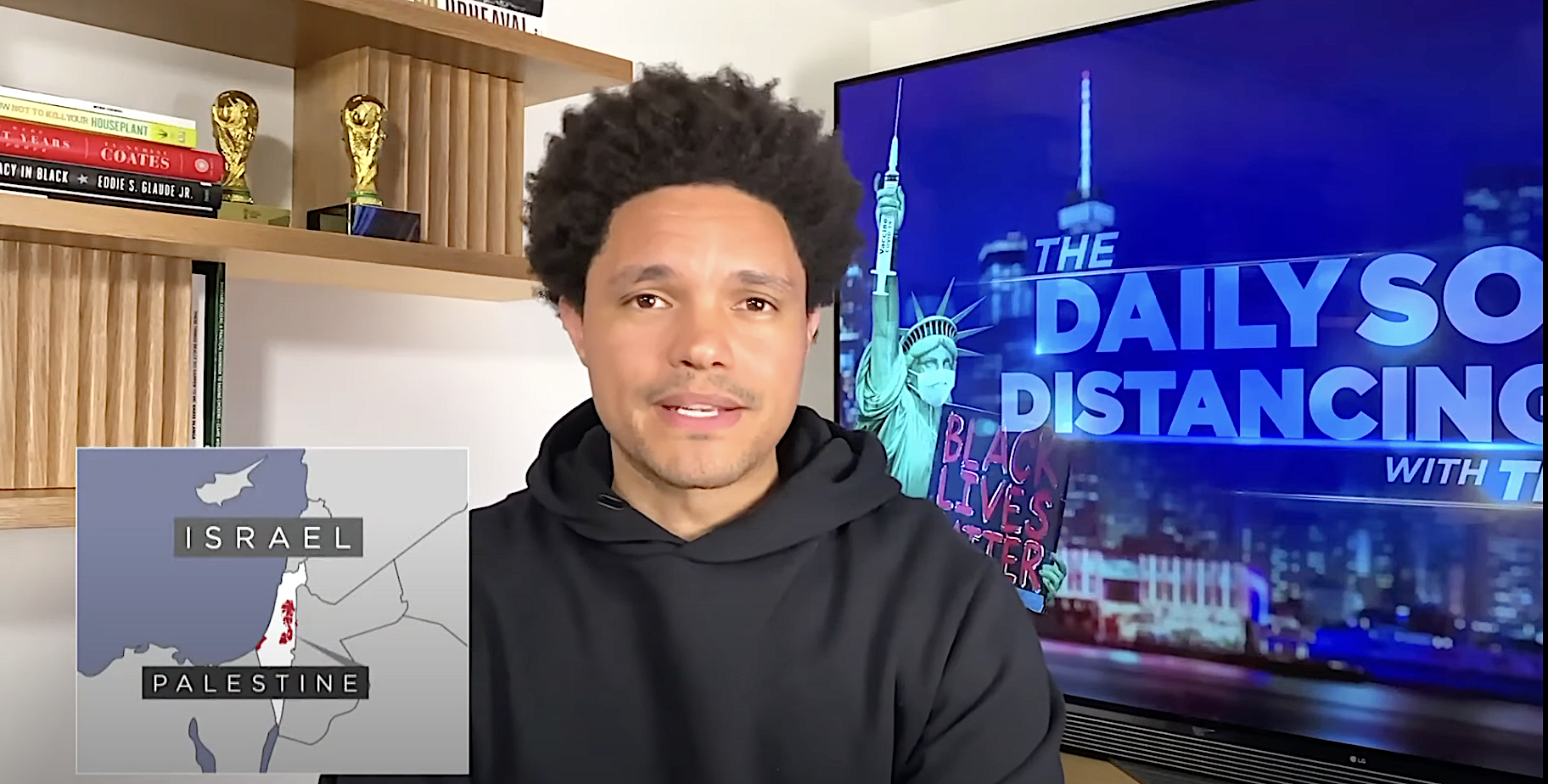 The Daily Show's Trevor Noah carefully steps through the Israel-Palestine minefield to an 'honest question'
The Daily Show's Trevor Noah carefully steps through the Israel-Palestine minefield to an 'honest question'Speed Read
-
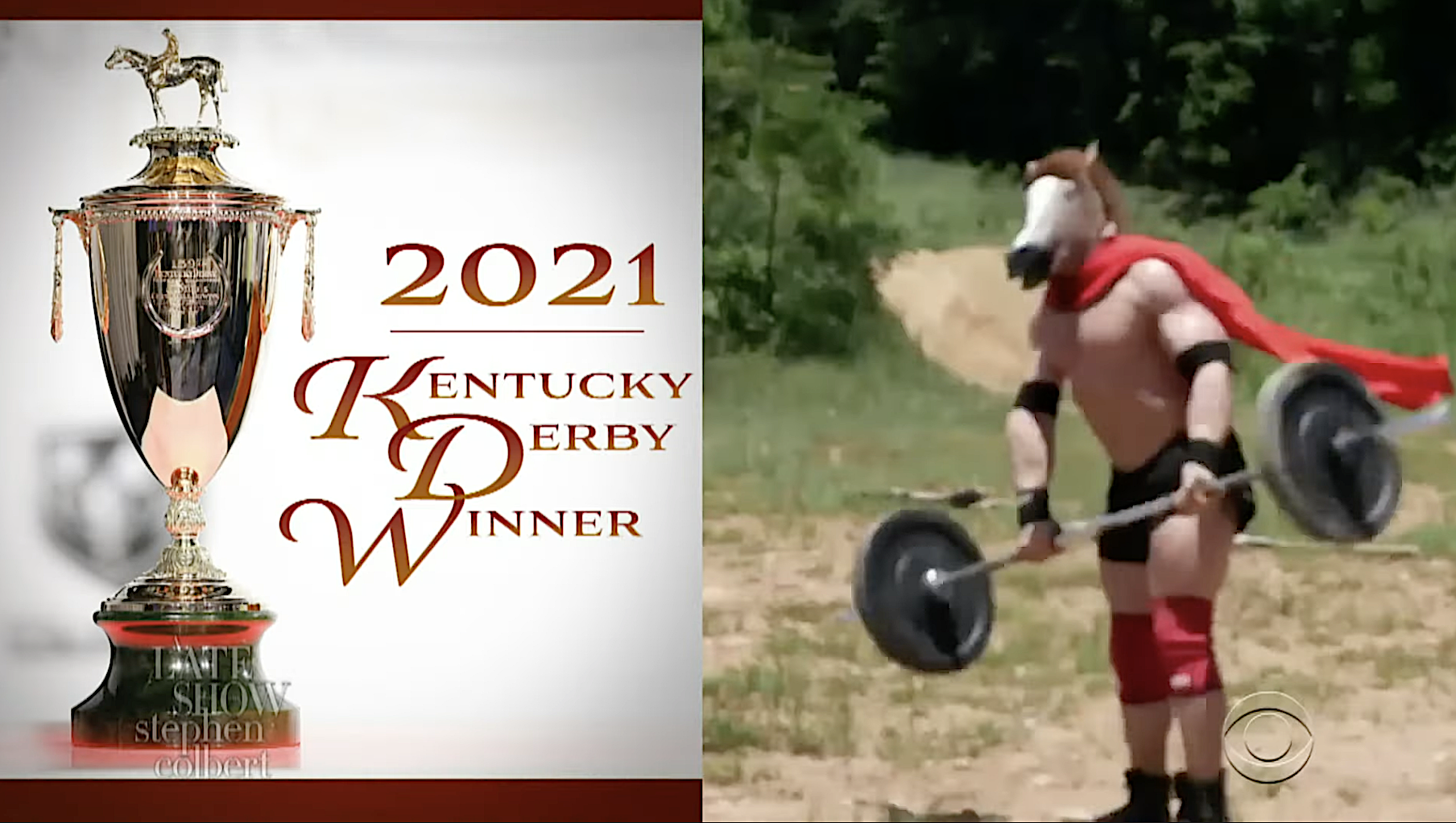 Late night hosts roast Medina Spirit's juicing scandal, 'cancel culture,' and Trump calling a horse a 'junky'
Late night hosts roast Medina Spirit's juicing scandal, 'cancel culture,' and Trump calling a horse a 'junky'Speed Read
-
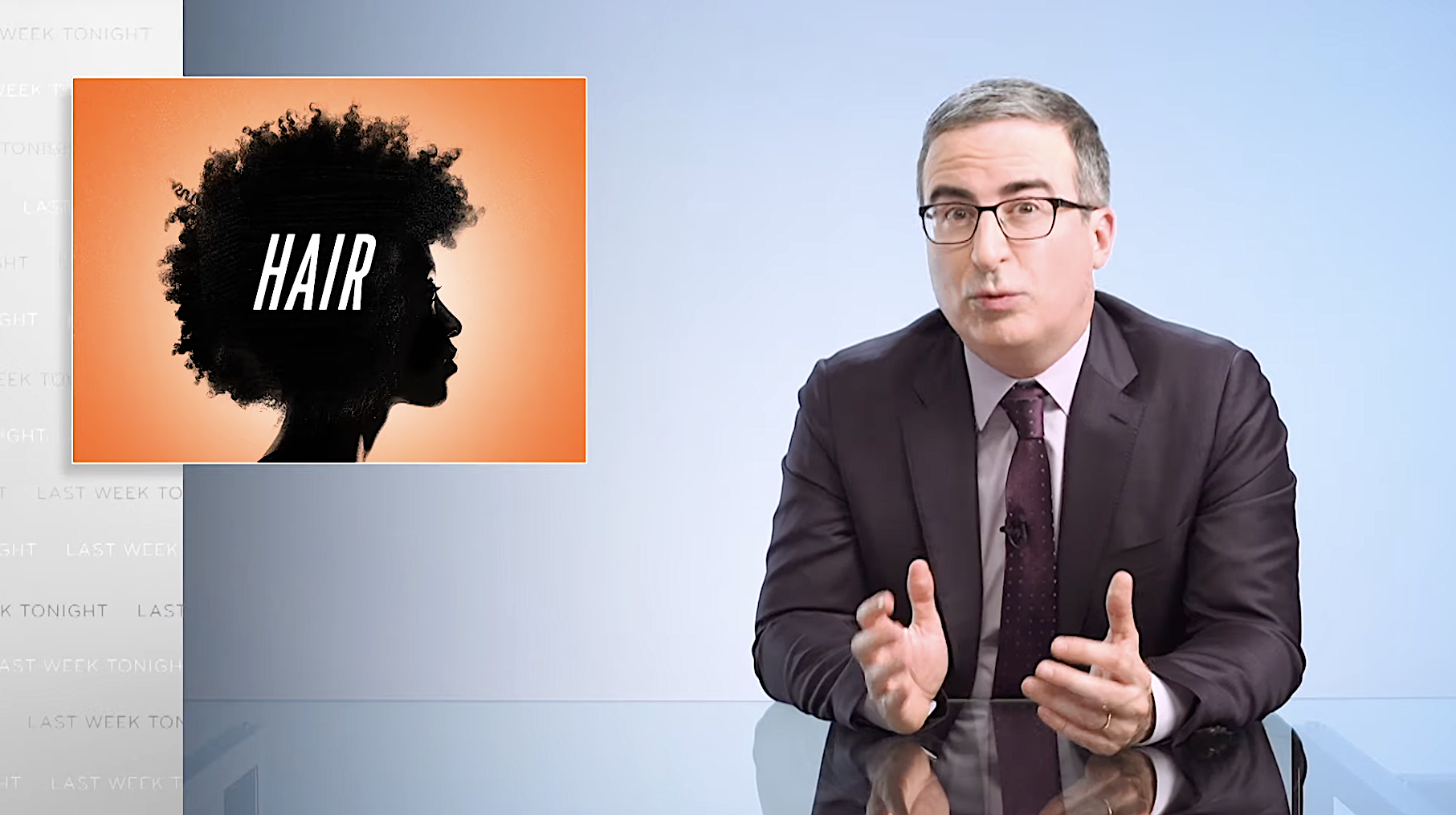 John Oliver tries to explain Black hair to fellow white people
John Oliver tries to explain Black hair to fellow white peopleSpeed Read
-
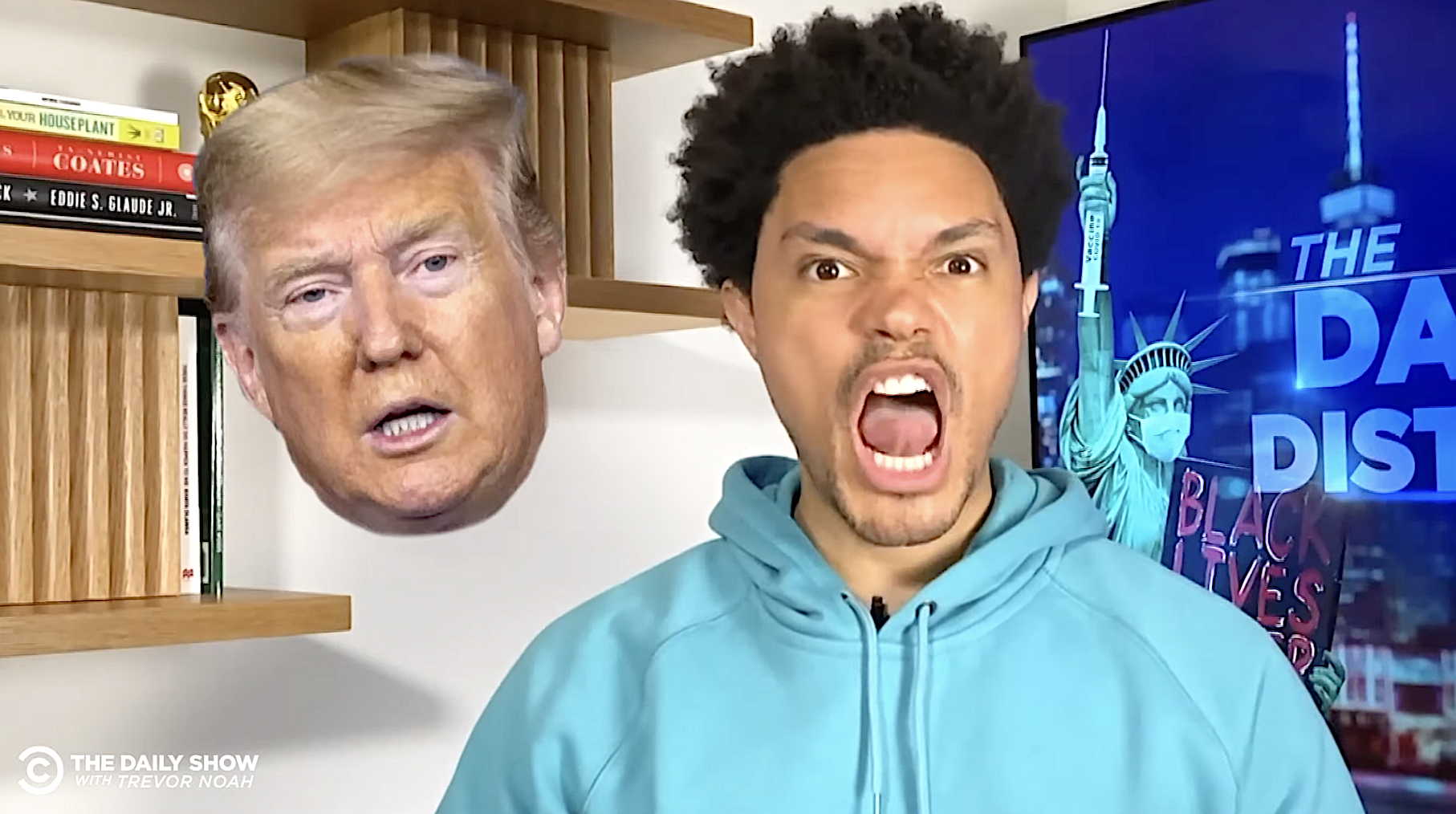 Late night hosts explain the Trump GOP's Liz Cheney purge, mock Caitlyn Jenner's hangar pains
Late night hosts explain the Trump GOP's Liz Cheney purge, mock Caitlyn Jenner's hangar painsSpeed Read